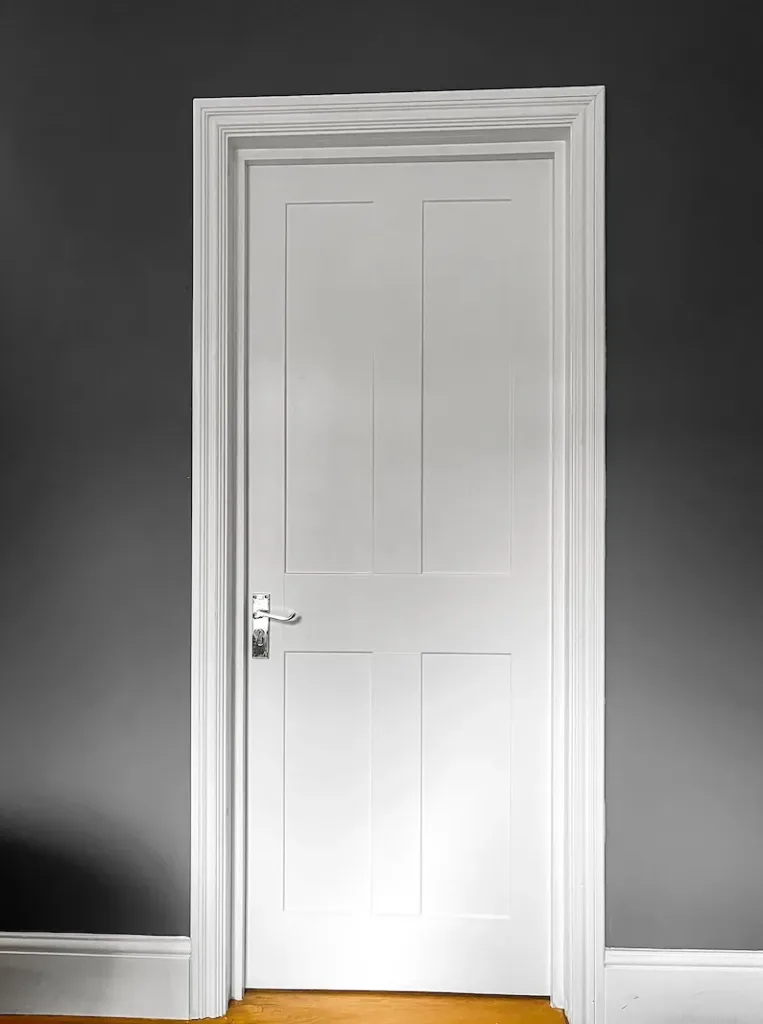In London’s bustling real estate market, Houses in Multiple Occupation (HMOs) have become a popular choice for property investors. However, managing HMOs comes with responsibilities, especially regarding safety. One critical aspect is the installation of HMO fire doors, which are essential for safeguarding tenants and ensuring compliance with legal regulations.
What Are HMO Fire Doors?
HMO fire doors are specialized doors designed to slow the spread of fire and smoke, providing valuable time for occupants to evacuate in emergencies. These doors are mandatory in all HMOs in London to meet safety standards and protect lives. When it comes to HMO Fire Doors London, they are built with fire-resistant materials and feature intumescent seals, automatic closers, and durable hinges to ensure they perform effectively under extreme conditions.
Where Are Fire Doors Required in HMOs?
Fire doors play a critical role in ensuring safety within HMOs, and their placement is vital. They are typically required at the entrances of bedrooms to protect tenants while they sleep, as well as at kitchen entrances to contain potential fires originating from cooking activities. Additionally, fire doors are necessary along escape routes, such as hallways and staircases, to ensure clear and safe pathways for evacuation in case of an emergency.
Features of High-Quality HMO Fire Doors
To meet London’s stringent HMO standards, fire doors must have specific features. These include a fire resistance rating, such as FD30 (providing 30 minutes of fire resistance) or FD60 (offering 60 minutes). Intumescent seals are another essential component, as they expand when exposed to heat, effectively sealing gaps to block smoke and fire. Self-closing mechanisms ensure that the doors remain closed after each use, maintaining their protective function. Furthermore, it is crucial to use certified materials that comply with standards like BS 476 or EN 1634 to guarantee safety and effectiveness.
Legal Requirements for Fire Doors in HMOs
“Legal Requirements for Fire Doors in HMOs” refers to the specific laws and regulations that landlords in London must adhere to regarding fire safety in Houses in Multiple Occupation (HMOs). These regulations mandate the installation of fire doors in certain areas of the property to ensure tenant safety in the event of a fire.
In this section, it is important to explain that HMOs must comply with fire safety standards set by local authorities, which include the requirement for fire doors in critical areas such as bedrooms, kitchens, and escape routes. These standards are designed to ensure that fire doors offer sufficient protection by preventing the spread of fire and smoke, thus providing tenants with the time needed to evacuate safely.
You should also highlight the penalties landlords may face if they fail to meet these regulations. These could include fines, legal action, or even the revocation of their HMO license. By installing fire doors that comply with these legal requirements, landlords not only ensure the safety of their tenants but also protect themselves from legal consequences and potential damage to their property.
Choosing the Right Fire Door Installer in London
Selecting a reliable fire door installer is a key step for landlords to ensure proper installation and compliance. It is important to choose companies with recognized accreditations, such as BM TRADA or FIRAS, which certify their expertise in fire door installation. Experience with HMOs is another critical factor; working with specialists who understand London’s specific HMO regulations can save time and ensure compliance. Additionally, some installers offer comprehensive services, including fire risk assessments and ongoing maintenance checks, making them a convenient and reliable choice for landlords.
Benefits of Installing HMO Fire Doors
Peace of Mind for Landlords: Installing fire doors ensures that the property complies with all safety regulations, minimizing the risk of fines or legal issues. This allows landlords to focus on managing their properties without worrying about potential non-compliance penalties.
Increased Tenant Confidence: Tenants feel safer and more secure in properties equipped with proper fire safety measures, including fire doors. This increases their trust in the landlord and makes the property more attractive to prospective renters.
Enhanced Property Value: Properties with robust fire safety features are more appealing to tenants, often attracting higher-quality occupants. This can lead to better rental returns and an overall increase in the property’s market value.
Conclusion
HMO fire doors are a vital component of managing properties in London’s real estate market. They not only protect tenants but also ensure landlords meet strict HMO licensing requirements. Installing certified fire doors and working with experienced professionals is the best way to safeguard your investment and provide a safe living environment for tenants.
If you’re a landlord in London managing an HMO, don’t overlook the importance of fire doors. Contact a trusted fire door supplier and installer today to ensure your property is both safe and compliant.





